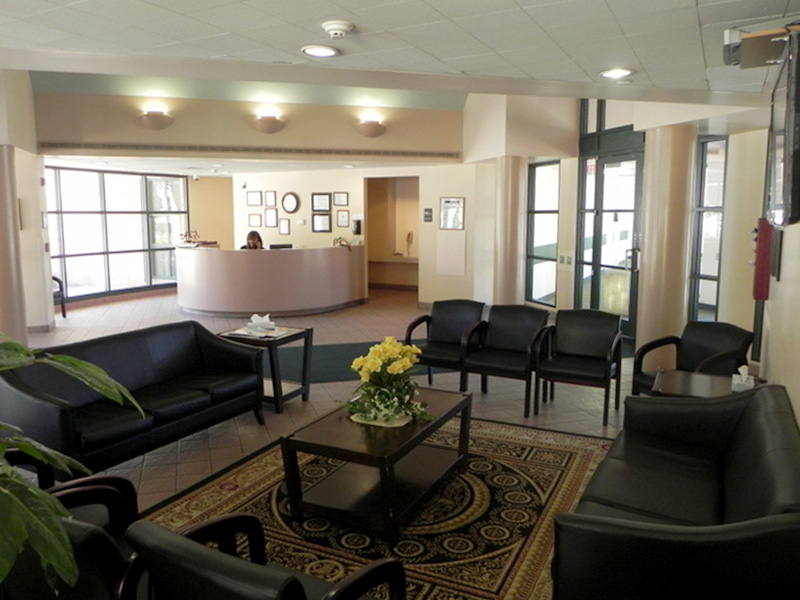Often times the signs of depression can be difficult to identify. One of the most important steps in the recovery journey is understanding the signs, symptoms and side effects of depression.
Understanding Depression
Learn about depression
When a person struggles with episodic or pervasive feelings of sadness, helplessness, or hopelessness that hinder functioning in a number of settings, it is likely that that individual is battling depression. This mental health condition has the potential to negatively affect a person’s ability to complete even the most mundane tasks. Without treatment, symptoms of depression can adversely impact a person’s quality of sleep, relationships with others, ability to fulfill roles or responsibilities, or school and work performances. Furthermore, symptoms of this illness that are not treated can worsen over time and cause a person to develop an additional mental health disorder or disorders, self-harming behaviors, and suicidal ideations that can evolve into attempts at ending one’s own life.
Individuals who no longer wish to suffer from the debilitating symptoms of depression can seek and receive beneficial treatment for this disorder and find relief from even the most distressing symptoms. Care for depression typically involves a number of therapeutic interventions that teach coping skills and methods for managing symptoms in effective, appropriate, and healthy ways. Additionally, treatment can also afford these individuals with access to medication management services in the event it is determined that medication(s) can reduce the severity of depression symptoms. What is important to know is that depression does not have to stand in the way of living a happy life; there is treatment available that can vastly improve the lives of those who grapple with this mental health condition.
Statistics
Depression statistics
A mental health condition that does not discriminate based on a person’s age or sex, depression is one of the most commonly diagnosed mental health conditions that affects people. Young people battle this condition and it is estimated that 1 in 33 children and 1 in 8 adolescents suffer from depression. Additionally, this disorder is said to affect 7% of adults and 15% of senior adults. Regardless of how old or young a person is, anyone that is suffering from depression symptoms can greatly benefit from treatment.
Causes and Risk Factors
Causes and risk factors for depression
Experts in the field of mental health agree that the causes and risk factors for depression are best explained by examining a person’s individual genetic, physiological, and environmental histories. Consider the following elaborations on this belief and additional risk factors when trying to understand why and how a person develops depression:
Genetic: Similar to other mental health conditions, depression is a disorder that can be inherited from one’s biological parents. In fact, research on the prevalence of depression among individuals who share genes has concluded that 40% of people who meet diagnostic criteria for depression possess a family history of this disorder. In sum, depression does have genetic origins.
Physical: Neurobiological studies have discovered that serotonin and dopamine, chemicals in the human brain that regulate mood, can lead to the onset of depression when these chemicals are out of balance. Imbalanced neurochemicals, such as these, can prevent a person from responding to situations in an emotionally healthy or appropriate way. Furthermore, researchers that utilized neuroimaging realized that individuals who struggle with depression possess structural differences in their brains when compared to those who are not battling this mental illness. Both of these physical factors are believed to cause a person to meet diagnostic criteria for depression.
Environmental: Certain circumstances and environmental influences have the potential to impact whether or not a person develops symptoms synonymous with depression. Especially if an individual lacks the necessary and appropriate support and skills for coping with stress, the occurrence of certain life experiences or the use and abuse of substances can lead to the onset of depression symptoms. For example, exposure to trauma, abuse, neglect or being the victim of a crime can cause symptoms of depression to manifest. Additionally, changes in a person life, such as academic failure, loss of employment, or death of a loved one can bring about depressive episodes as well. Lastly, the likelihood for the development of depression can increase substantially if a person possesses a family history of this mental health condition.
Risk Factors:
- Being female
- Family history of depression or other mental health condition(s)
- Personal history of another mental health condition or conditions
- Personal history of using or abusing drugs and/or alcohol
- Inability to acquire or maintain employment
- Inability to achieve academically
- Experiencing a major life change
- Financial strife or poverty
- Elevated stress levels within one’s environment
- Exposure to trauma, abuse, and/or neglect
- Being the victim of a crime
Signs and Symptoms
Signs and symptoms of depression
There are a number of factors that can influence the obviousness of depression signs and symptoms. Depending on the sufferer’s age, length of time this disorder has been present, and the frequency of depression episodes can all impact the severity and, therefore, apparentness of depression. If you suspect that you or a loved one are struggling with this type of disorder, it is imperative to identify the presence of the following depression signs and symptoms and seek care as soon as possible:
Behavioral symptoms:
- Unexplained emotional outbursts
- Not being able to adhere to responsibilities or roles
- Declined interest in things that were once enjoyed
- Self-harming behaviors
- Truancy
- Missing work
- Social withdrawal or isolation
Physical symptoms:
- Headaches or migraines
- Decrease in energy
- Experiencing somatic symptoms
- Poor hygiene
- Insomnia
- Hypersomnia
- Changes in appetite
- Weight gain
- Weight loss
Cognitive symptoms:
- Hindered ability to make good decisions
- Lack of concentration or focus
- Memory impairments
- Delayed or slowed thinking
Psychosocial symptoms:
- Feelings of hopelessness
- Apparent feelings of helplessness
- Irritability
- Over criticism of self
- Guilty feelings
- Pervasive sadness
Effects
Effects of depression
Those that suffer from the debilitating symptoms of depression and go without treatment are often at risk for experiencing a number of detrimental effects that can severely impact a person’s emotional and physical health. There are several options for care that can successfully treat depression and prevent such effects from occurring. The combination of traditional psychotherapy, psychotropic medications, and experiential therapies can vastly improve the lives of individuals who are suffering from this devastating mental illness. The listed effects are examples of what could be avoided if a person receives treatment for his or her depression symptoms:
- Social withdrawal or isolation
- The development of another mental health condition(s)
- Lack of impulse control
- Poor decision-making
- Increased levels of anxiety
- Distressing conflict within interpersonal relationships
- Hindered academic performance
- Impaired occupational functioning
- Compromised immune system
- Obesity
- Substance use / abuse
- Self-injury
- Suicidal ideations
- Suicide attempts
Co-Occurring Disorders
Depression and co-occurring disorders
Sometimes the symptoms of another mental health condition can trigger the onset of depression. Furthermore, when a person is battling depression, symptoms of an additional mental illness can manifest as a result. The following mental health disorders are commonly diagnosed alongside a depression diagnosis and could require their own treatment in the event a person seeks care for a depressive disorder:
- Anxiety disorders
- Bulimia nervosa
- Anorexia nervosa
- Attention-deficit/hyperactivity disorder (ADHD)
- Obsessive-compulsive disorder (OCD)
- Borderline personality disorder
- Post-traumatic stress disorder (PTSD)
- Dementia
- Schizophrenia
- Substance use disorders




